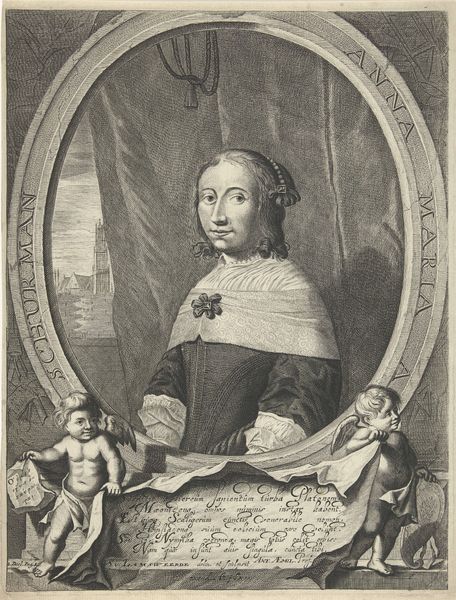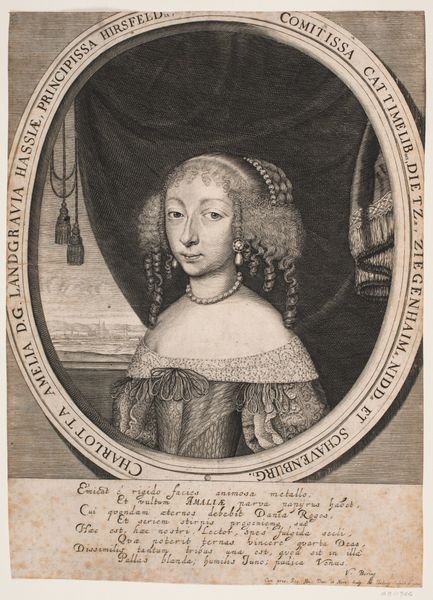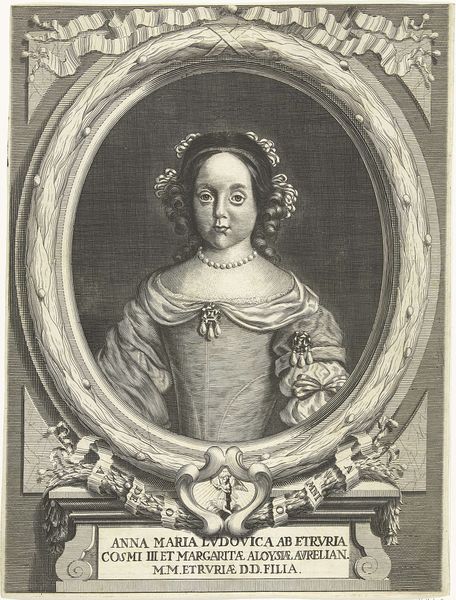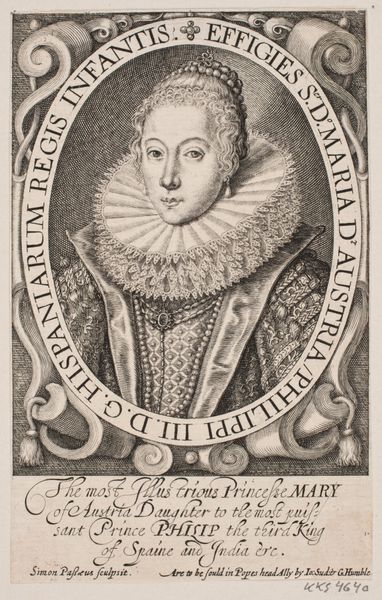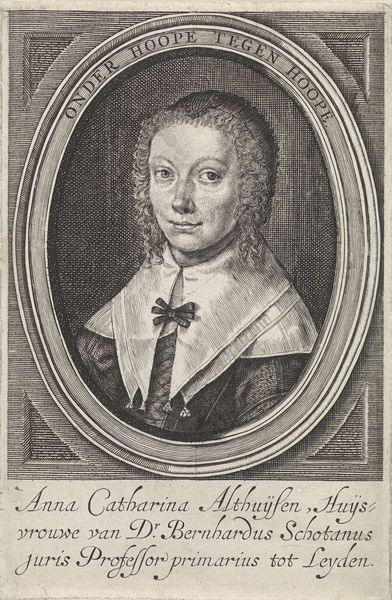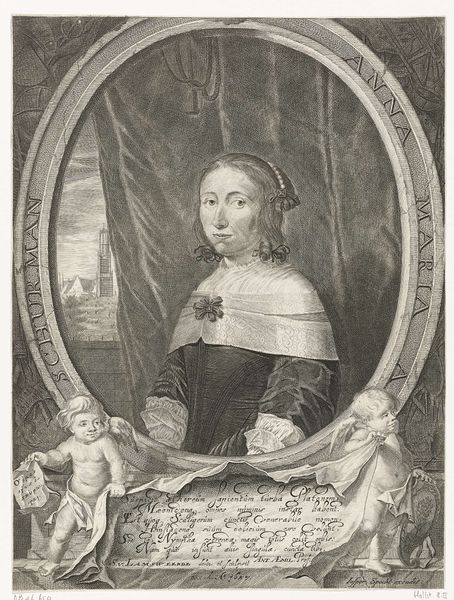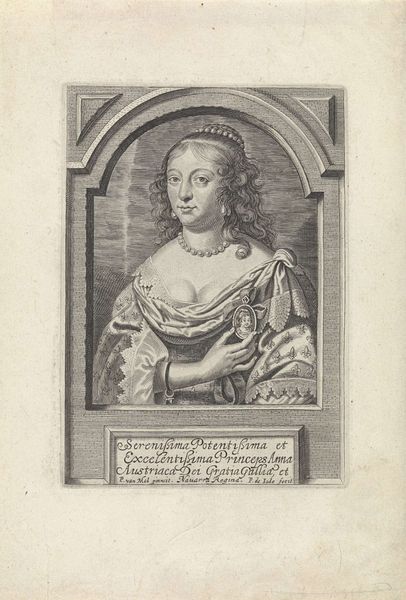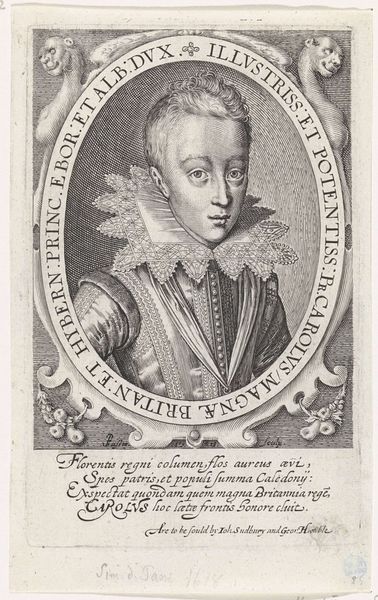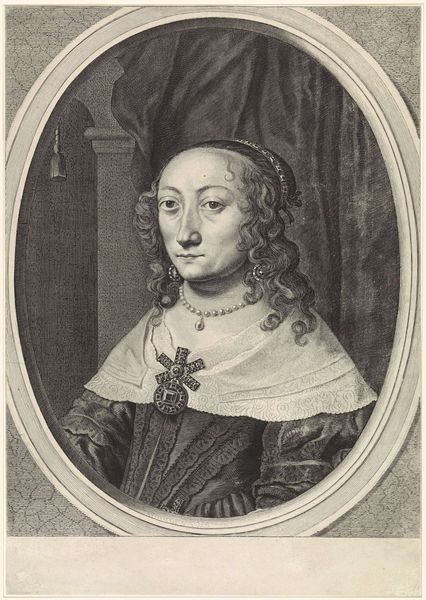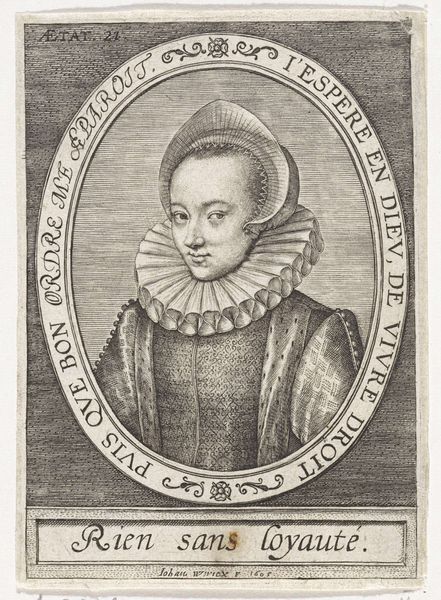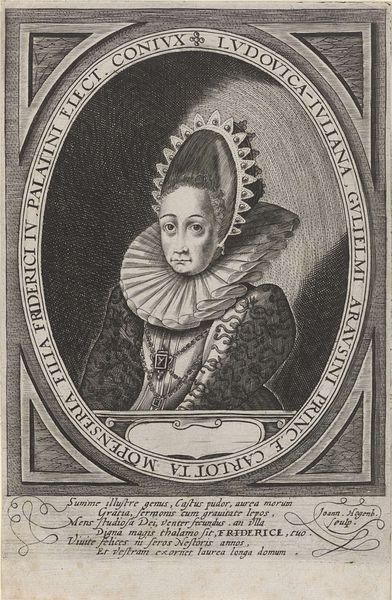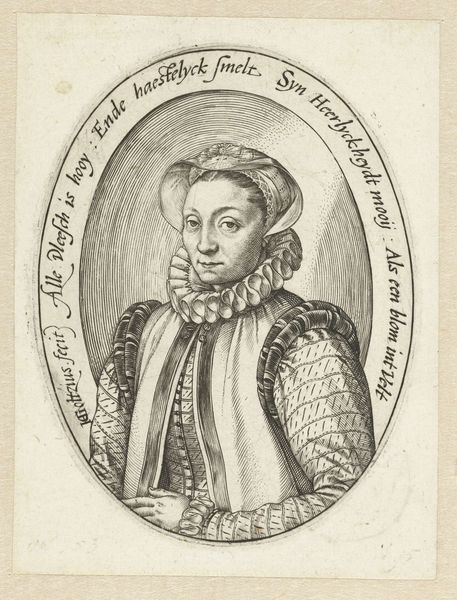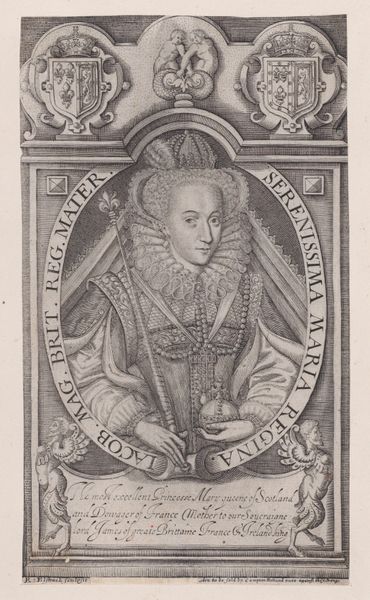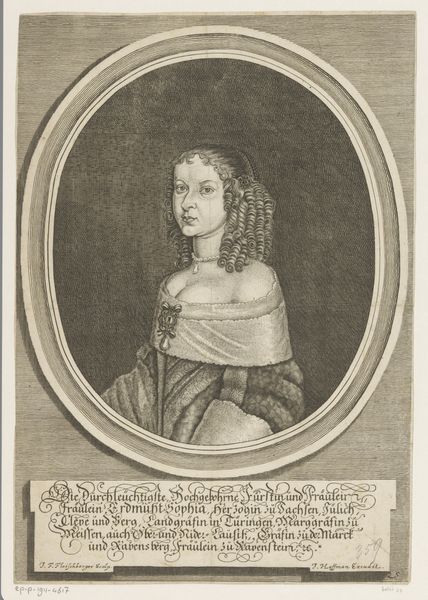
engraving
#
portrait
#
baroque
#
old engraving style
#
vanitas
#
history-painting
#
engraving
Dimensions: height 343 mm, width 227 mm
Copyright: Rijks Museum: Open Domain
This engraving, made by Paulus Pontius, depicts Judith Cotermans in the year 1639. Here, the skull at the base immediately draws our attention. In this context, it serves as a memento mori, a reminder of mortality, a motif ubiquitous in Dutch Golden Age art, urging viewers to reflect on the transience of life. Interestingly, the skull also appears in ancient Roman art, often in funerary contexts, to commemorate and honor the deceased. As we delve deeper into history, we see that in some ancient cultures, skulls were kept and revered as relics, believed to hold the spirit and wisdom of ancestors. The image presents a tension between earthly existence and the eternal. This duality speaks to a deep-seated human preoccupation with confronting our own mortality. This emblem remains a potent symbol across time, compelling us to ponder life's ephemerality and our place in the grand tapestry of existence.
Comments
No comments
Be the first to comment and join the conversation on the ultimate creative platform.
